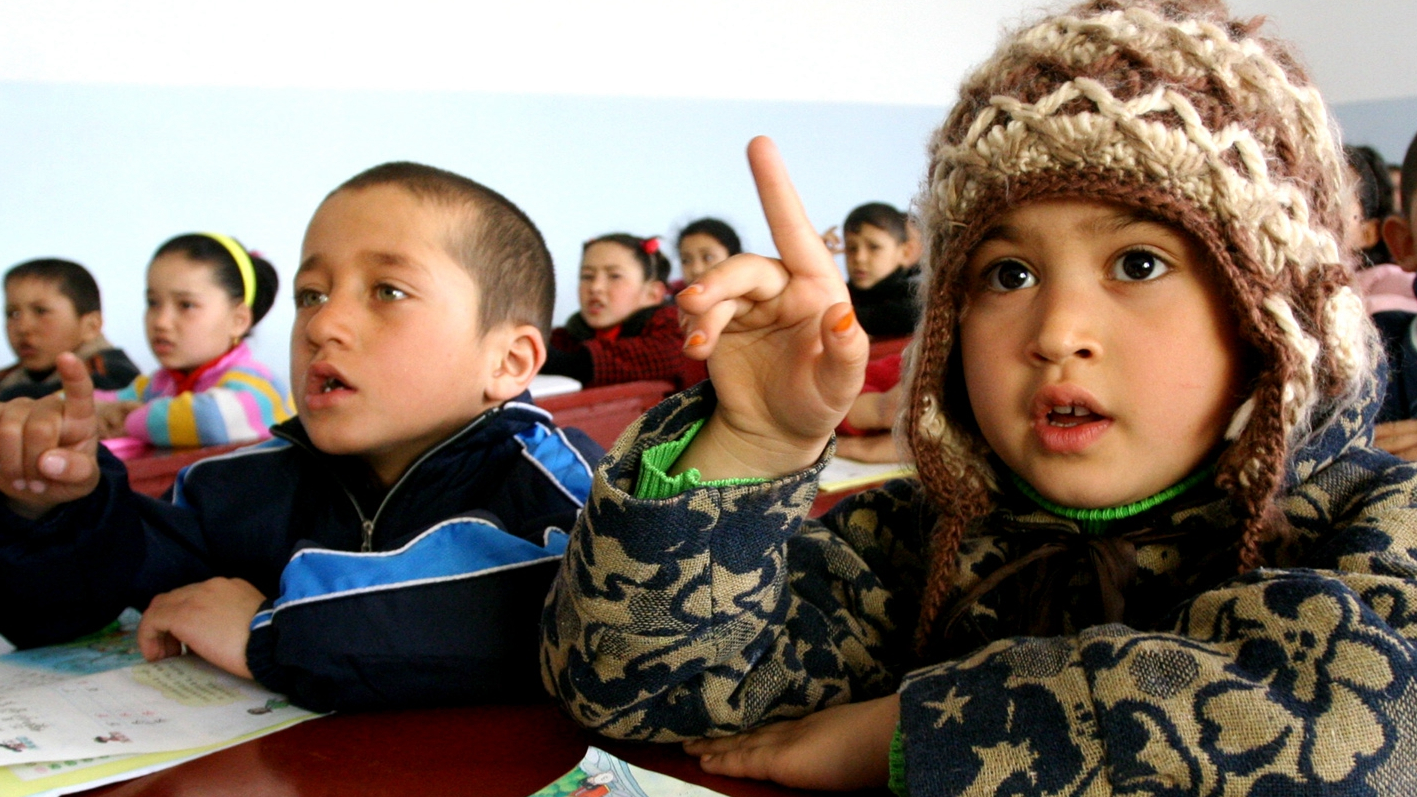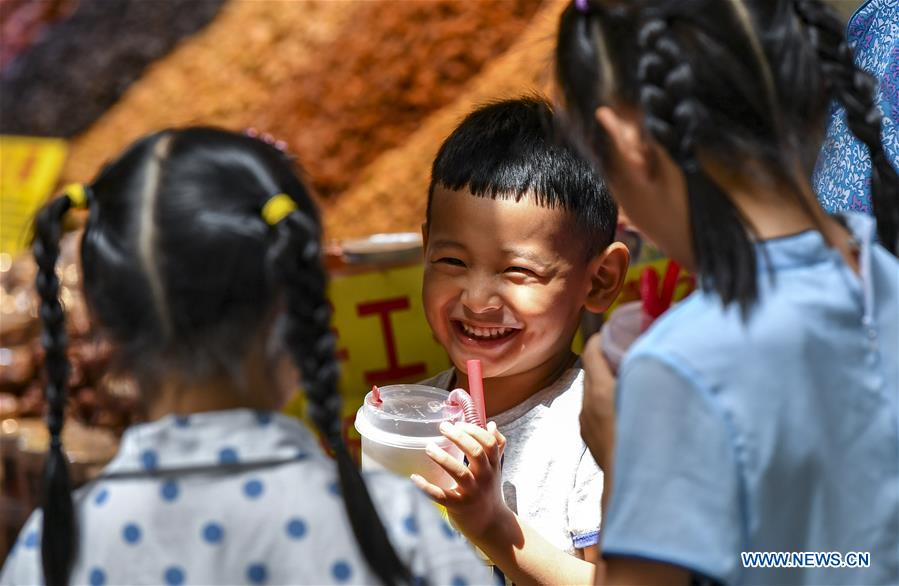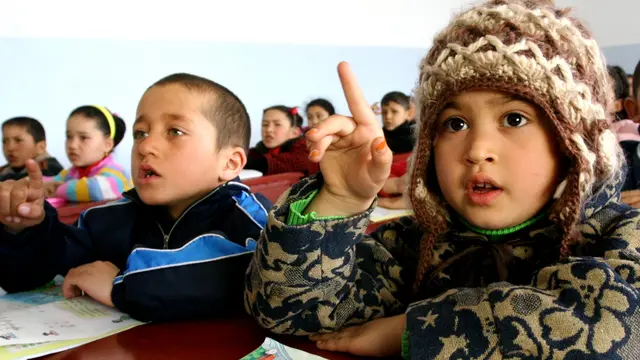
Editor's note: Tom Fowdy is a British political and international relations analyst and a graduate of Durham and Oxford universities. He writes on topics pertaining to China, the DPRK, Britain, and the U.S. The article reflects the author's opinions, and not necessarily the views of CGTN.
On Monday morning Xinjiang authorities held a press conference in response to reports from the New York Times which claimed that China has constructed a large number of boarding schools in the bid to purposefully separate ethnic Uygur children from their parents with the goal of "assimilating" them into Han Chinese culture.
The paper goes on to allege that over half a million children have been subject to this separation, and that they have to "pledge loyalty to China and the Communist Party." The conference sought to directly address some of the most difficult and emotional questions regarding these claims.
First of all, one of the key areas covered in the conference involved the importance of investing education in China. The conference stated "we aim to try our best to enable every child to enjoy free and fair high quality education" and it subsequently states that investment in schools in Xinjiang has cultivated a "great number of excellent professionals in various fields and trades" who "have provided vigorous support to the regions' economic and social development.
Now while this is not likely to convince critics, academic evidence supports these claims.
As James Leibold of La Trobe University notes in a December 2018 paper, presentation of Xinjiang educational policies in the West is "poorly understood," viewed through "one dimensional" cliches, failing to explore how minority groups both view and benefit from them. He describes the schools as "Neidiban" (interior classes).
While he observes the boarding schools do indeed encourage an affiliation with Chinese identity, which is acknowledged in the press conference as merely pursuing the policy on patriotic education, he nevertheless also found that the system of applying to boarding schools of such a kind is "coveted" and "competitive," with a "selective" admissions process.
He further notes that "Most of its graduates go on to top Chinese universities." This is not something the Uygur population appears to hold in disdain, but something many see as beneficial.
He continues by elaborating that the "Neidiban system promises and delivers high quality, affordable education, making it a highly sought-after commodity among minority parents, especially given that generous state subsidies cover most of the costs involved." He concludes that "preferential access to educational resources provides disadvantaged minority students and their families with valuable avenues for upward social mobility, higher social status and greater income potential, even if this comes at a cultural and personal cost for some."

Children in Xinjiang enjoy their summer vacation, Urumqi, Xinjiang Uygur Autonomous Region, China, July 17, 2019. /Xinhua Photo
This helps elaborate further points expressed in the press conference, and in Leibold's paper.
First of all, these schools are not about destroying or diminishing the Uygur ethnic identity, or any other form of malign intention. Instead, he observes the boarding school system is geared towards the maintenance of "ethnic harmony" and stability, something which has increased as a political priority in China due to recent tensions and unrest in the region. Again, these points were raised in answers to questions.
If so, how then can Western media coverage of the issue be explained? Ultimately, a great deal of it broadly ideological and deeply assumptive.
First of all, there is the overwhelming frame of mind that the Chinese government has "no right to be in Xinjiang" and therefore it is presented as a hostile, foreign aggressor with binary evil intent, which would not be pleased save the area was independent.
These build into broader ideological cliches which misleadingly associate China's policies with the legacy of certain regimes in the 20th century Europe, taking the policies out of context. This has coincided with the intentional politicization of Xinjiang – the pursuit of broader Western objectives against China.
Therefore in summary, Xinjiang's boarding schools are not the sinister, malign scheme they are made out to be. While yes they play a role in consolidating national unity, stability and addressing ethnic tensions, nevertheless talk of so called "forced boarding" and "separation from parents" are misleading, and fail to appreciate how this system is actually desirable and very beneficial to the ethnic group in question.
(If you want to contribute and have specific expertise, please contact us at [email protected])
 简体中文
简体中文

